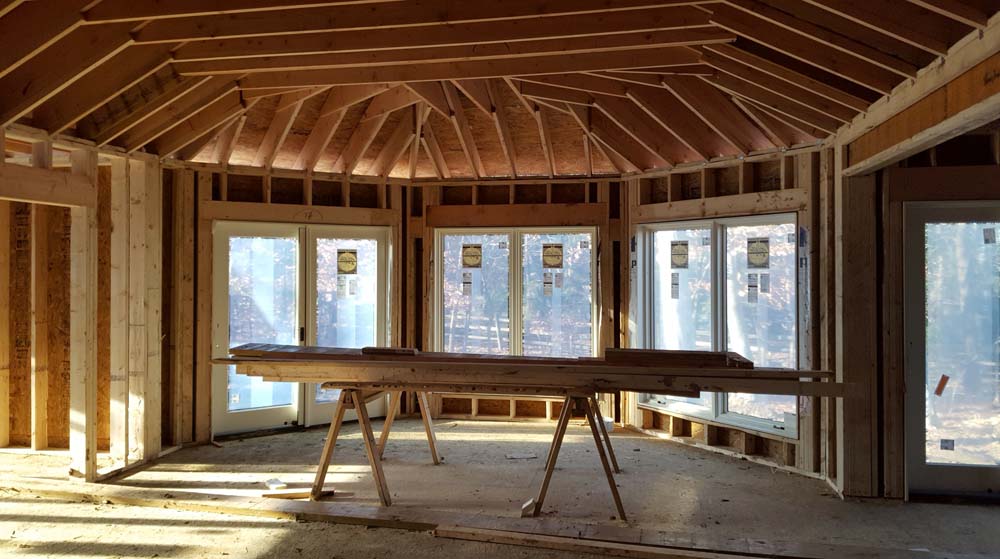
Do I Need A Building Permit for That?
Every contractor and every Architect has heard the question many times – “Do I need a building permit for my project?”
Or to put it more accurately, “Do I need to pay for an expensive building permit, and go through the hassle and delays of inspections for my simple little project?”
In other words, “If I’m supposed to get a permit but don’t, what’s the harm?”
Most municipalities have a list of projects that require permits, so the first question’s often easy to answer. The other questions are a little more complicated.
But first let’s take a look at what permits are for in the first place.
Building Codes, Permits, and Inspections
Building permits are a byproduct of building codes. Codes are regulations that spell out what is considered “acceptable” construction in terms of public health, safety, and welfare.
Building codes have been around in one form or another for centuries, and are often updated after major disasters (fires, earthquakes, etc.) to address safety issues those disasters uncovered.
The extensive roof damage from hurricane Andrew, for example, led to a complete rewriting of the building codes that cover much of the southeastern United States.
Building codes – when their requirements are properly executed – help insure that new and remodeled houses will resist the forces of nature; will not electrocute or asphyxiate the occupants; will provide healthful air and water; will safely carry wastes away; will not easily catch fire; will help keep you from falling down the stairs, and a hundred other things.
So your local government, obviously, wants to make sure you’re going to build your project “to code”.
But before they’ll grant you permission to begin construction you’ll have to apply for a building permit. Your application (and drawings, if required for the project) will be reviewed by a Plans Examiner, who will (hopefully!) issue you a permit, once he’s determined that the plans comply with the code.
Congratulations, but you’re not done yet. To assure that your project actually gets built according to the building code, the city will schedule a number of inspections of the work that must be successfully passed before the next phase can begin.
Those time-consuming inspections, combined with the sometimes surprisingly expensive permit fees for even very small projects, are what occasionally tempt homeowners to skip getting a permit.
So What Kinds of Projects Need A Building Permit?
Here in Ohio, residential projects of 3 units and under are governed by a statewide building code. Our code is very similar to others around the country and requires building permits for all new homes, and all remodeling projects, except (this is a heavily edited list):
- Tool sheds, storage sheds, and playhouses as long as they’re no bigger than 200 square feet.
- Fences six feet high and under.
- Retaining walls four feet high and under.
- Sidewalks and driveways not more than 30 inches above grade.
- Painting, tilework, countertops, cabinets, and similar finish work.
- Swings and playground equipment.
- Window awnings that project 54 inches or less from the wall.
- Decks that are not more than 200 square feet; are not more than 30 inches above grade; and are not attached to a house.
- Temporary decorative lighting (no permit needed to light a Christmas tree).
- Basic electrical repairs and maintenance, and replacement of parts and equipment of 25 volts or less and 50 watts or less.
- Portable heating or cooling equipment.
- Plumbing leak repair, except when concealed pipes need to be replaced.
If I’m supposed to get a permit but don’t, what’s the harm?
A lot, potentially. Building codes aren’t just good ideas – they’re the law, like it or not. And the consequences of not complying with the law can be significant.
A licensed contractor caught doing work without a permit can lose his or her license; a homeowner can be fined, required to get a permit anyway, and made to redo any work to meet code.
If you move ahead with construction without permits or inspections, you’ll suffer all the above and be forced to get previously-completed work inspected – which could literally mean tearing out an entire foundation to allow inspection of the soil the footing is bearing on.
Time and money is what you’ll lose in all those situations, but things can be much, much worse. Imagine your home catches fire, and the cause is traced to improper and unlicensed electrical work – do you think your insurance company will pay your claim?
Same goes for an improperly-built deck; plumbing that leaks behind a wall and causes toxic mold growth; and a furnace that allows carbon monoxide gas into the house.
And if you’ve bought or sold a home lately, you know that Home Inspectors are hired by prospective buyers to find substandard, illegal, or dangerous conditions in a house. If you’ve done improper work without permits, a home inspector will likely find it and bring it to the buyer’s attention. Which means you’ll probably have to bring it up to code anyway or knock money off your asking price.
So – do I need to pay for an expensive building permit, and go through the hassle and delays of inspections for my simple little project?
Homeowners replace faucets, toilets, light switches, and ceiling fans themselves every day. Home Depot and Lowe’s depend on that.
For the most part, building departments give wide latitude to that kind of DIY work; they’re not following you home from the hardware store to see if you got a permit to install the toilet you just bought.
And these days, with so much information available online about DIY work, the chances you’ll do it right are better than ever.
Contractors, too, sometimes won’t bother with permits on small electrical or plumbing projects. If you’ve checked their references and they know what they’re doing, chances are good that things will turn out ok.
But for anything that involves “construction” – decks, room additions, or anything that requires any kind of structural modification – you need a building permit.
A permit won’t guarantee you won’t goof up the project, but the DIY-er will have the benefit of several other sets of experienced eyes to look it over and point out mistakes; a contractor will have protection for their valuable license; and you’ll both be shielded from some potential liability down the road.



This is really helpful! Thank you!
Love your blog, Donna! (http://ourbrightroad.com) Looking forward to following your journey.
Very important information. As a former realtor, and primarily a buyer’s rep., I always encouraged inspections. When problems are discovered, they’re covered. Even if everything is found to be in good condition, the prospective buyers learn so much about the home. And from a homeowner’s prospective, permits insure that you won’t run into trouble at sale time.
Thanks Cheryl – seems like inspections are standard operating procedure these days!
My wife and I are wanting to renovate our home and add an additional room soon, so thanks for sharing this. I like your point about how you can get fined without a permit if your work doesn’t meet code. We’ll be sure to get the proper licensing before we start so we don’t get into any legal trouble.